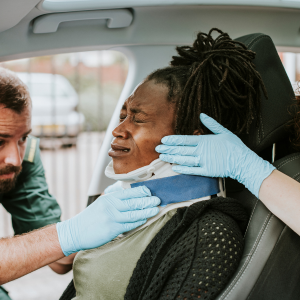Actually, there are seven things. So, let’s start with this one first:
Connecticut police officers, prosecutors and judges are afraid of making a terrible mistake.
The mistake that they fear is going easy on a Connecticut Breach of Peace, Assault 3rd Degree, Disorderly Conduct or other Connecticut domestic violence charge and waking up a few weeks later to the news that the same defendant has seriously injured or even killed the same, or another alleged victim.
This extraordinarily cautions and sometimes paranoid environment can make the defense of a Connecticut domestic violence very complicated and challenging.
In addition to understanding that this environment exists, what else do you need to know about Connecticut domestic violence allegations? Here are six more factors that you must understand:
#1 You are presumed innocent. Yes, every single one of the next five instructions is extremely valuable. But always understand that if you are wrongfully accused, you have the right to confront witnesses against you, present evidence on your own behalf and make the State prove its case beyond a reasonable doubt.
#2 Before you have to rely upon the presumption of innocence and before anger and resentment build to even a simmer, get counseling. Find an individual therapist and, where appropriate, seek joint counseling. It may only be that you need some new language and some insightful instruction so that you can learn to communicate more compassionately and openly and avoid confrontation.
#3 If you’ve already been arrested for a Connecticut domestic violence charge, it’s not too late to start counseling, whether you intend to defend your case at trial or not. Re-read the benefits described in #2. And add in the benefit that the court will be reassured if it sees that you are taking your health and your behavior seriously. That counseling should then yield a well-written, clinical letter from your therapist that further reassures the court about the skills that you’ve acquired and that you are not a threat to others or to yourself.
#4 There will be some level of a Connecticut Criminal Protective Order issued in your case. You have a right to a hearing to argue against that order and its terms. That hearing permits your lawyer to call witnesses and cross examine witnesses. And that hearing may be especially important if the protective order prevents or limits your ability to see your children.
#5 The Connecticut Family Relations Department will want to interview you at least twice. Understand that what you say to Connecticut Family Relations officers is not confidential. It’s not like speaking with your lawyer. So, make sure that when you meet with Family Relations, your attorney attends that meeting in order to manage what and how you answer and protect your Fifth Amendment right against self-incrimination.
#6 Even with counseling, understand that your case is going to take a long time to resolve. In fact, if you apply for a pretrial diversion program called the Family Violence Education program, you may be granted a dismissal of your case, but that dismissal could be a year or longer away.
Some judges like to refer to a “track record”. In other words, the court wants to see a lot of weeks pass during which things are peaceful and there are no problems. We know that you want your case done. Of course you do. But you want it done with the best possible results. So patience must be part of your strategy.
The thorough defense of a Connecticut domestic violence case requires a skilled, experienced Connecticut criminal defense law firm. These cases involve not only a superb grasp of the law but also a highly intelligent understanding of the psychological and emotional subtleties that run through these cases.
[nap_names id=”FIRM-NAME-3″]’s attorneys and team of professionals have been defending Connecticut domestic violence cases for nearly thirty years. In order to combat and manage the many aspects that will determine a successful outcome of your domestic violence case, contact [nap_names id=”FIRM-NAME-3″] today.




